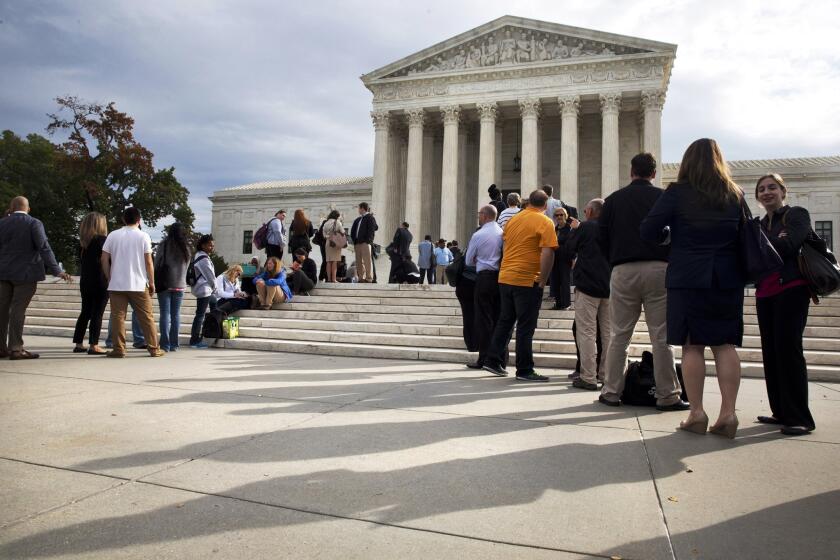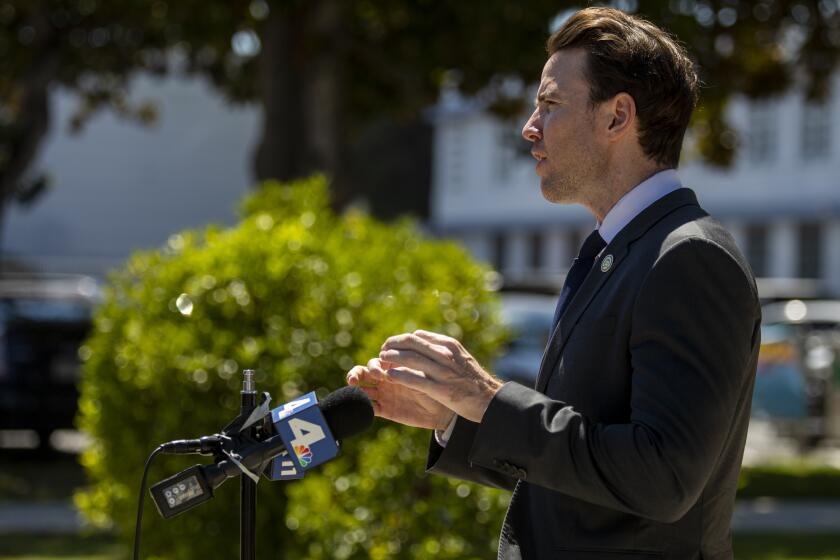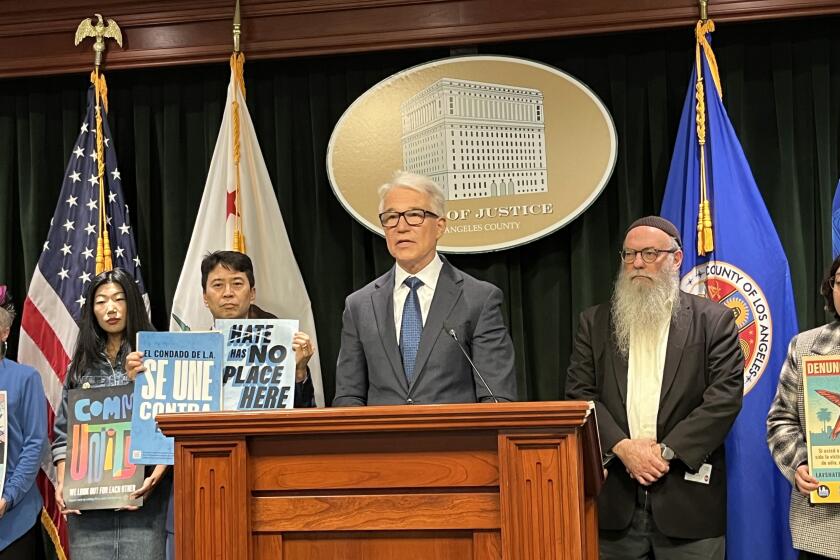Editorial: Parole consideration for those sentenced to life behind bars 35 years ago? It’s the right thing to do

California’s crime rate began a historic plunge in the early 1990s and has fallen ever since, except for some small spikes, including during the COVID-19 pandemic. Yet it took more than a decade until legislation reflected the trend.
Lawmakers continued to pass fear-driven tough-on-crime laws until 2011, based on the mistaken public mind-set that crime was higher than in the recent past. When federal courts threatened to order indiscriminate releases from the state’s unconstitutionally bloated and cruel prison system, California began a decade of criminal justice reform as lawmakers and voters rolled back some of the horridly excessive punishments adopted over the previous half-century.
Judges aren’t wizards who can see the future, so it’s absurd to grant them legal power to brand any juveniles as incorrigible.
Now the crime-and-punishment debate has shifted again. Republican politicians generally want to end the reform era and return to tougher punishments. Democrats are split between continuing reform and retrenchment.
That’s the background of a heated debate over state Senate Bill 94, a worthy proposal by Sen. Dave Cortese (D-San José) to review sentences for several hundred aging California prisoners who were sent to prison for life without parole before June 5, 1990, in the pre-reform era.
Life without parole, nonexistent in California until 1978 and rarely used for more than a decade after, became standard after 1990s ballot measures made the sentence mandatory for some crimes.
While some Democrats and Republicans are backing away from efforts to shrink the prison population and reduce excessive sentences, conservatives are again a crucial force for criminal justice reform.
More recently, reform laws returned some sentencing discretion to judges.
SB 94 follows a sensible path of recent laws and U.S. Supreme Court decisions that permit parole hearings for most people sentenced to life without parole for crimes they committed as juveniles.
It is controversial, though, because it applies to people who committed their crimes as adults, who, unlike their younger counterparts, cannot blame their criminal actions on insufficiently developed brains or lack of adult judgment. It is noteworthy, though, that most offenders who would be eligible committed their crimes in their late teens or early 20s.
Three bills to roll back or repeal Proposition 47 are grounded in fear and falsehoods and should be rejected.
The law would not directly resentence or release any of them. It would create a multistep process that would let them make their cases for resentencing, but only after they have spent at least 25 years in prison. Serial killers, cop killers and sex offenders would not be eligible.
For the rest, judges would hear the requests and would have full discretion to reject them. If a parole hearing is granted and the Board of Parole hearings finds an offender suitable for parole — because he or she has presented ample evidence of remorse and rehabilitation over decades in prison — the governor could still reject release.
Most eligible offenders are now in their 60s and 70s, well beyond the prime age for violent crime. For many, more than a half-century will have passed between their crimes and their eligibility to seek resentencing.
The exonerations of Jofama Coleman, Abel Soto and others should remind us of the dangers of elevating fear and vengeance over justice.
Pragmatism and a measured sense of justice, rather than sympathy, are the rationales for this bill. Probably few Californians will feel sorry for killers, regardless of the number of decades they have been locked up. But there is diminishing value in continuing to imprison people for violent crimes they committed long ago when they were young and stupid.
There are continuing costs to housing, feeding, clothing and medically treating the elderly in prison. And there is value to society in limiting the number of decades a person is to be punished even for the cruelest of acts after sufficient evidence is presented that there is little risk that parole will endanger the public.
Still, in our system even the most rational sentencing reform takes a back seat to partisan politics. Republicans and Democrats are vying for control of Congress, and their battles over criminal justice measures are each fought with any eye on a handful of races in the House of Representatives that are up for grabs, as each side uses crime fears to get their voters to the polls.
That’s part of what’s at play in the fight over whether to roll back Proposition 47, which turned certain theft and drug crimes that could be charged as felonies in the tough-on-crime era back into misdemeanors. And it’s part of what’s at play with SB 94.
The bill will fail if it doesn’t pass the Assembly by Saturday. It would be a shame to allow a safe and cost-saving reform like this one to die in that partisan fight.
More to Read
A cure for the common opinion
Get thought-provoking perspectives with our weekly newsletter.
You may occasionally receive promotional content from the Los Angeles Times.









